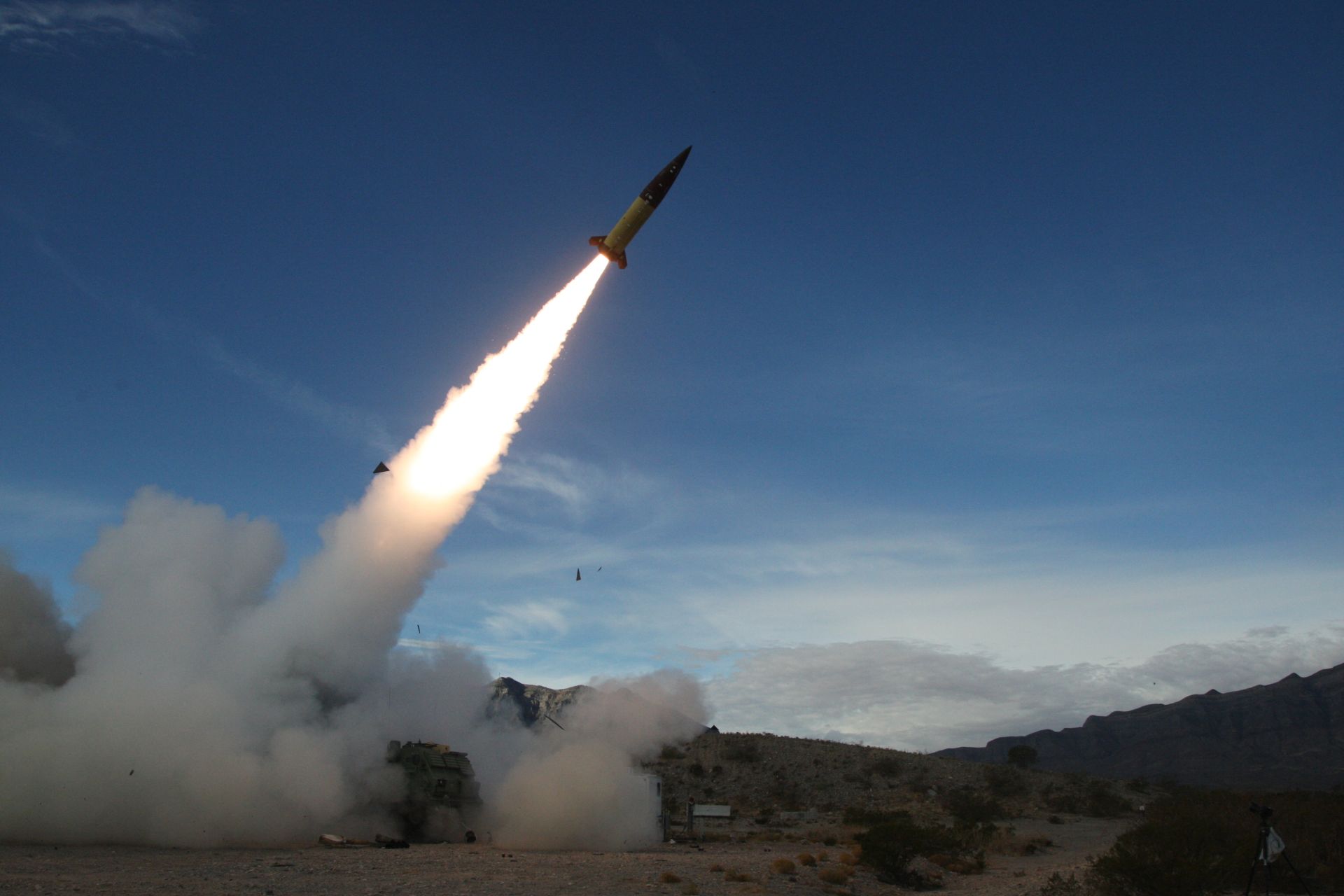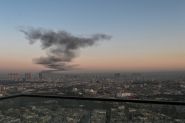- Home
- Middle East
- Kremlin Accuses Biden of 'Fuelling' War as Ukraine Strikes Odesa

This handout photo courtesy of the US Department of Defense taken on December 14, 2021 shows the US Army conducting live fire tests of the Army Tactical Missile System (ATACMS) at the White Sands Missile Range in New Mexico. ©John Hamilton/DoD/AFP
The Kremlin accused US President Joe Biden on Monday of escalating the war in Ukraine by allowing Kyiv to use long-range missiles supplied by Washington to strike targets inside Russia.
The comments came as Moscow unleashed a second missile attack in as many days on the UNESCO-protected Ukrainian city of Odesa on the Black Sea that left 10 dead and more than 40 wounded.
Kyiv has long sought authorisation from Washington to use the powerful Army Tactical Missile System, or ATACMS, to hit military installations inside Russia as its troops come under growing pressure.
President Volodymyr Zelensky said Monday he had visited the frontline city of Pokrovsk, which Russian forces are closing in on.
"This is a tense area. It is only thanks to the strength of the (Ukrainian) soldiers that the east is not completely occupied by Russia," he wrote on social media.
Ukraine says it needs to be able to carry out strikes in Russia to prevent aerial bombardments that have levelled entire districts of towns near the front line and decimated energy facilities across the country.
"It's obvious that the outgoing administration in Washington intends to take steps in order to continue fuelling the fire and provoke a further escalation of tensions," Kremlin spokesman Dmitry Peskov said.
A US official earlier confirmed the major US policy shift to AFP specifying it was in response to Russia's deployment of thousands of North Korean troops to aid its war effort.
Peskov said this marked "new spiral of tensions and a qualitatively new situation from the point of view of the US's engagement in the conflict."
'Provocation'
He said President Vladimir Putin had expressed Moscow's position clearly in September when the Russian leader said such a move would put NATO "at war" with Russia.
Putin said in September that if Ukraine were to attack Russia with long-range missiles, Moscow would "take the appropriate decisions based on the threats".
Washington's decision comes weeks after Kyiv first warned that North Korea was training and dispatching thousands of its troops to aid the Kremlin war in Ukraine, which is approaching its third anniversary.
Kyiv has warned that Moscow, alongside the North Korean soldiers, have amassed a 50,000-strong force to wrest back parts of the Russian border region of Kursk seized by Ukrainian forces.
US Principal Deputy National Security Advisor Jon Finer said Monday that Washington had been clear it would formulate a response to the Kremlin's decision to deploy "a foreign country's forces" in Russia.
"The United States has been clear that we would respond to that. We've been clear to the Russians that we would respond," he told reporters in Brazil.
Ukraine claimed swathes of Kursk in August during a lightning offensive even as its troops were thinly-stretched in the Donetsk region, which has borne the brunt of nearly three years of fighting.
Odesa strike
Russia, which has been making rapid gains in Donetsk over recent weeks, said it had claimed another village in the region where Ukrainian defensives have been buckling.
A senior official in the Ukrainian presidency said Kyiv's use of the missiles would speak for itself but added that this decision was "needed a year ago."
That sentiment on the timing of the US decision was echoed by a Ukrainian serviceman deployed in the Donetsk region who identifed himself as Odin.
"Is it long overdue. How long can this go on? They can kill our children, mothers," he told AFP near Pokrovsk.
"These are not random strikes -- they are demonstrative strikes. Russia is showing what it is really interested in: only war," Zelensky said.
Hours before the fresh strike, national grid operator Ukrenergo and Ukraine's largest private energy company DTEK said engineers were still repairing damaged facilities in Odesa following Russia's last missile and drone barrage on Sunday.
DTEK said 400,000 families in several regions had been reconnected but some 321,000 subscribers in the Odesa region were without power and others in the Black Sea region did not have heating or water supplies.
Ukrenergo said it had stepped up electricity imports from neighbouring European countries to make up for the the shortfall.
With AFP
Read more



Comments